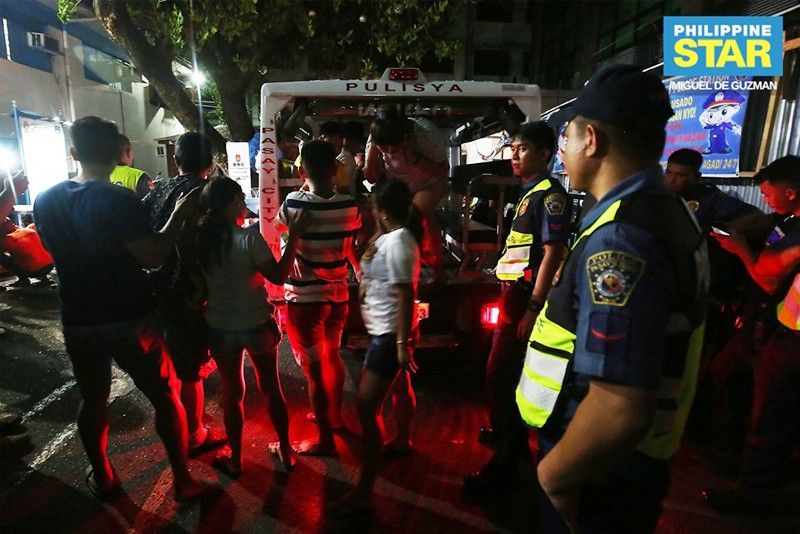Unicef urges rejection of lower age of criminal liability

MANILA, Philippines — Pointing to efforts to undermine the impact of the law for rehabilitation and restoration rather than punishment of children, the United Nations Children’s Fund (UNICEF) yesterday urged the Philippines to fully and effectively implement the Juvenile Justice and Welfare Act and reject the proposal to lower the minimum age of criminal responsibility.
The agency made the urgent call on the 13th anniversary of the Juvenile Justice and Welfare Act and reiterated its commitment to promote the rights of all children, including children in conflict with the law and children-at-risk.
“Recently, there have been efforts to undermine the impact of the Juvenile Justice and Welfare Act by proposing to lower the minimum age of criminal responsibility. Using misleading information, there are those who claim that the law has failed. But this is not a fact,” UNICEF said.
The Senate will debate on the proposal to lower the minimum age of criminal responsibility.
“The law cannot fail if it is fully and effectively implemented. Lowering the minimum age of criminal responsibility is not the answer,” UNICEF said as it noted that “putting children in prison or detaining them will only cause more harm to the child and the community.”
Senate Bill 2026, authored by Sen. Vicente Sotto III, attempts to lower the age of criminal responsibility to 12 and allow children to be placed in a closed youth facility from the age of nine. The bill argues that lowering the age of criminal responsibility will curb criminality and stop adults from using children but UNICEF said “this is a flawed argument.”
The proposal to lower the age of criminal liability to 12 years old, UNICEF said, is a “giant leap backward.”
UNICEF urged the Philippine government to celebrate the 13th anniversary of the Juvenile Justice and Welfare Act by upholding the rights and best interests of the children and to lead the full and effective implementation of the law.
The agency said children in conflict with the law are already victims of circumstance, mostly because of poverty and exploitation by adults.
“Children need access to rehabilitation services because they deserve a second chance. They need to be protected and not further penalized,” it added.
Adopted on May 20, 2006 and amended in 2013, RA 9344 or the Juvenile Justice and Welfare Act (JJWA) promotes the creation of a child-friendly justice system focused on rehabilitation and restoration rather than punishment.
JJWA upholds the basic principle that a child must not be treated as an adult as enshrined in the United Nations Convention on the Rights of the Child (CRC) signed and ratified by the Philippines. It provides that “the child, by reason of his physical and mental immaturity, needs special safeguards and care, including appropriate legal protection, before as well as after birth.”
“The law makes it clear – without a doubt – that there is a need for a separate juvenile justice system where detention is the last resort,” UNICEF said. “The erring child must be rehabilitated and reintegrated into society if the child must take responsibility for his or her action and mend the broken relationship with the community and the victim.”
The proper implementation of JJWA, according to UNICEF, has led to many success stories (Children Not Criminals) proving that children in conflict with the law can be rehabilitated without resorting to imprisonment or detention.
UNICEF has been working with local governments, civil society organizations, executive and administrative bodies, Supreme Court, and children themselves to fully implement the law to protect children’s rights whether the child is the victim, the offender, or a community member.
“As we celebrate this milestone, let us be reminded that all children must be treated with dignity and accorded their inalienable rights with utmost respect and protection,” the agency said.
- Latest
- Trending































